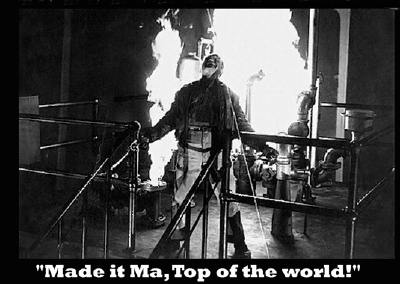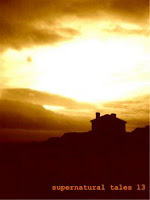
'David Boreana-who?'
In horror fiction, such as the myriad novels of the late Dennis Wheatley, there are cults galore. Cults that worship Satan are always popular - well, they are with Satan. Also there are cults that worship the Great Old Ones in HP Lovecraft's stories, and those of his many acolytes. It's all good murky fun, of course. If you're not having an orgy you're dressing up in nice robes and sacrificing somebody to something.
In reality, though, cults are less fun. Apparently they break up families, brainwash people and are generally a bit nasty and exploitative. This is not surprising, really, as all irrational movements have to dominate vulnerable, unhappy people. They're not likely to get happy, sensible people on board with their nonsense, are they?
Which brings me to Scientology. Apparently someone was recently cautioned by a copper in London for holding a placard that describes Scientology as a cult. This is now against the law. I know, it makes no sense to me either, but apparently the fuzz and the Scientologists are getting mighty cosy down the Smoke. So much so that simply calling a cult a cult can be interpreted as a crime. If the copper in question has been given the right orders. By a Scientologist, or a Scientologist's friend?
Bear in mind that in the past the Metropolitan police has not exactly covered itself in glory. Stephen Lawrence, anyone? They couldn't catch a gang of murderers, but they were straight onto the dreaded cult crime.
So here I go, probably breaking the law myself. Because Scientology is a cult. It was founded by a bad sci-fi writer, L. Ron Hubbard, who allegedly made a bet in a bar that he could create a new religion. He made a fortune charging Americans (mostly) to join his church. Oh, and what do Scientologists believe? That we are all a bit loopy because a Galactic warlord called Xenu shoved some of his enemies into a volcano a few billion years ago. Their souls were reborn in us, you see. As a basis for a movie it would be bollocks. Audiences would laugh if that was the pay off. If Tom Cruise (who else?) were to say: 'You see, Cindy, Mr Hitler invaded Poland and gassed all those people because evil Lord Xenu did a bad thing way, way back.' Yet that is what Mr Cruise and thousands of others genuinely believe. And if that doesn't make Scientology an absurd, crackpot cult I don't know what does. So come and get me copper! (Note to self - end with appropriate pic of real actor.)






